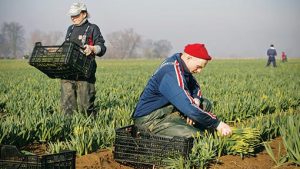by Yvette Russell*, The Law School, University of Bristol
Tag: criminal law
The Cost of ‘Justice’: Sexual Offence Complainants and Access to Personal Data
By Dr Yvette Russell, Senior Lecturer in Law and Feminist Theory (University of Bristol Law School)

Monday last week saw the announcement of a new national policy requiring criminal complainants to sign consent forms authorising detectives to access data in their mobile phones. Conveyed in a joint briefing by Metropolitan police assistant commissioner Nick Ephgrave and director of public prosecutions (DPP) Max Hill QC, the new policy is designed to ‘ensure all relevant lines of enquiry are followed’ and that any material that undermines the case for the prosecution or assists the case for the accused is detected and disclosed to the defence. While the forms are not to be used solely for sexual offence complainants the use of the forms in these cases was a major focus of Monday’s briefing. While the CPS noted that not all sexual offence complainants will be asked to divulge digital data it is likely, given that most sex crimes occur between parties who are known to each other, that a high proportion of those complaining will be asked to sign a consent form and hand over their phones and the data therein.
Following the robust objections of many rape survivors’ advocacy groups to the new policy, the CPS and police late last week invited victims’ groups to discuss their concerns about the new consent form. Over the weekend, the Association of Police and Crime Commissioners took the unusual step of publicly objecting to the introduction of the consent form, labelling it a risk to public confidence in the criminal justice system. (more…)
Centre for Law at Work Launched
By Dr Jennifer Collins, Lecturer in Law, and Prof Alan Bogg, Professor of Labour Law, Centre for Law at Work (University of Bristol Law School).

On Thursday 28 June the Bristol Centre for Law at Work was launched. The Centre is based in the Law School, with Professors Alan Bogg and Tonia Novitz its founding Directors. It is supported by scholars from across the Law School who will come together to reflect upon legal issues relating to work and its regulation. Adopting an inter-disciplinary approach, the Centre aims to advance scholarly analysis of work-related issues, and to generate innovative perspectives. In so doing, it aims to shape policy at national, transnational and international levels using evidence-based interventions to influence current political debates. Centre members have already made high profile contributions to the recent Taylor Review of modern working practices.
A very successful launch of the Centre was held at the close of the first day of Professor Alan Bogg and Dr Jennifer Collins’ workshop, Criminality at Work. Professor Mark Freedland, opening the Centre, commented on Bristol’s global reputation in work-related legal scholarship. He was also deeply impressed by the excitement and enthusiasm across the University for the objectives and activities of the Centre for Law at Work. Professor Paddy Ireland, Dean of the Faculty of Social Sciences and Law, commented that the Law School has attracted fantastic interdisciplinary scholars who will contribute to the work of the Centre. The Centre will build links across the wider Faculty, based around the Faculty Research Group on Work. It will also connect with a global network of academic centres through its formal affiliation with the Labour Law Research Network. (more…)
On Harvey Weinstein the Sexual Predator, or Business as Usual
By Dr Yvette Russell, Lecturer in Law (University of Bristol Law School).*

The last few weeks have seen the revelation that Harvey Weinstein, renowned Hollywood producer of such award-winning films as Gangs of New York, Pulp Fiction, and Shakespeare in Love, moonlighted as a prolific sexual predator. A significant number of women have now made public complaints of sexual harassment and assault against Weinstein, including well-known Hollywood stars Gwyneth Paltrow, Rose McGowan, and Angelina Jolie. Weinstein is also reportedly facing allegations of rape. His wife, Georgina Chapman, announced she was leaving him, the company he co-founded fired him, and police on both sides of the Atlantic have opened investigations into him.
The media discourse that greeted the revelations has been characterised by astonishment at the scale of the alleged offending, and the failure of those making allegations to have come forward sooner. In fact, there is often evidence of a long line of complaints against men who are finally revealed in mainstream media to be chronic sexual predators. In Weinstein’s case there is evidence of three decades of prior complaints by women, at least two of which were reported to police. The public disclosure of these allegations was repeatedly thwarted by the use of non-disclosure agreements, the alleged ‘killing’ of news stories on the topic, and the habitual capacity of those who knew about it to ignore it. In the case of Jimmy Savile in the UK, believed to have preyed unimpeded for 60 years on around 500 vulnerable victims as young as two years old, a 2013 HMIC report found at least seven complaints against Savile in police records since 1964. (more…)
Abortion rights in Northern Ireland
A comment on R (on the application of A and B) v Secretary of State for Health [2017] UKSC 41.
By Dr Sheelagh McGuinness, Senior Lecturer in Law (University of Bristol Law School) and Prof Keith Syrett, Professor of Law (University of Cardiff, School of Law and Politics).
 The start of June 2017 saw abortion law in Northern Ireland (NI) making the news for several reasons. On June 9th, Theresa May announced that she intended to try and form a government with the Democratic Unionist Party (DUP). Members of this radically conservative party from NI have long been vocal in their opposition to abortion. Some feared that restrictions on abortion legislation might form part of negotiations between the two parties. On June 13th, the Department of Health published ‘The Report on abortion statistics in England and Wales for 2016’ which contained details on the number of women who travelled from NI to England to access abortion care. Then, on June 14th, the Supreme Court handed down an important decision on NHS funding for women who travel from NI to England to access abortions. These women, save in exceptional cases, must pay for abortion care privately, notwithstanding their status as UK citizens and (in many cases) UK taxpayers. In this blog we examine the Supreme Court decision and the context within which women travel from NI to have abortions in England.
The start of June 2017 saw abortion law in Northern Ireland (NI) making the news for several reasons. On June 9th, Theresa May announced that she intended to try and form a government with the Democratic Unionist Party (DUP). Members of this radically conservative party from NI have long been vocal in their opposition to abortion. Some feared that restrictions on abortion legislation might form part of negotiations between the two parties. On June 13th, the Department of Health published ‘The Report on abortion statistics in England and Wales for 2016’ which contained details on the number of women who travelled from NI to England to access abortion care. Then, on June 14th, the Supreme Court handed down an important decision on NHS funding for women who travel from NI to England to access abortions. These women, save in exceptional cases, must pay for abortion care privately, notwithstanding their status as UK citizens and (in many cases) UK taxpayers. In this blog we examine the Supreme Court decision and the context within which women travel from NI to have abortions in England.
The case
In 2012 A, a 15-year-old girl, became pregnant. She did not want to continue with the pregnancy and with the support of her mother, B, arranged to have a termination in England. A and B were surprised to find out that as A was resident in NI she would have to pay for the termination in England. Believing this to be unfair B, on A’s behalf, started proceedings to challenge the lawfulness of this policy. Their challenge contained two key claims. First, that the Secretary of State for Health was acting unlawfully in refusing to permit women from NI to access NHS funded abortions [the public law claim]. Second, that women in NI were being discriminated against as compared to other women in the UK [the human rights claim].
A and B were unsuccessful in the High Court and in the Court of Appeal. Their appeal to the Supreme Court was dismissed by a majority of 3:2. (more…)
The Rape Trial and the Limits of Liberal Reform. And Why Legal Scholars need to do Theory Better
By Dr Yvette Russell, Lecturer in Law (University of Bristol Law School).

In recently published work I engage in a philosophical and psychoanalytic excavation of legal discourse on (and in) the rape trial.[1] In this post I briefly summarise my key claims arguing, while I do, that legal scholars must diversify the theoretical tools they draw on in confronting issues of social justice.
Much feminist scholarship on rape asserts that the law has reached a best practice plateau and justice for victims is now being held back primarily by the aberrant ‘attitudes’ of criminal justice actors charged with implementing the law. Those attitudes, it is argued, militate against the best intentions of law makers charged with stemming burgeoning attrition rates. Attrition refers to the phenomena – not anomalous in the criminal justice system, but particularly marked in cases of sex crime – whereby alleged instances of sexual violence drop out of the criminal justice system. This occurs at multiple points, the most notable of which is the first point where a victim makes the decision to report to police. (more…)
Criminal Law to the Rescue? ‘Wolf-Whistling’ as Hate Crime
By Dr Yvette Russell, Lecturer in Law (University of Bristol Law School).*

On July 13, 2016 Nottinghamshire police became the first force in the UK to recognise misogyny as a hate crime. Hate crime is defined as ‘any criminal offence which is perceived, by the victim or any other person, to be motivated by hostility or prejudice based on a personal characteristic’. In practical terms, this means that in Nottinghamshire police can record reported incidents such as wolf whistling, verbal abuse, taking photographs without consent, and using mobile phones to send unwanted messages with an additional ‘flag’ or qualifier on their incident log as hate crime. It appears that the move is largely symbolic, as gender animus is not a relevant aggravating factor for the purposes of sentencing under relevant UK ‘hate crime’ legislation,[1] and does not create any new criminal offences. However, the initiative has been supported by the force working in partnership with the Nottingham Women’s Centre and has involved the specialised training of officers to better identify and respond to the public harassment of women by men.
The announcement last week of the initiative was met with the predictable level of teeth gnashing and cries of ‘political correctness gone mad’ characteristic of any policy announcement addressed to countering gender inequality. While the move may be largely bureaucratic, it does present an opportunity to look again at the spectre of criminalisation in our time and consider a related question: What is the role of the criminal law in regulating gender (in)equality, and what should it be? (more…)
Potions and prosecution: a case from medieval Herefordshire
By Dr Gwen Seabourne, Reader in Legal History (University of Bristol Law School).*

In 1292, Herefordshire, close to the Welsh border, received a visit from the royal justices, touring England with a view to hearing legal disputes, investigating crimes and making a tidy profit for the king from the various fines imposed upon individuals and communities. Precociously bureaucratic, the machinery of royal government recorded much of what went on before the justices, bequeathing to future generations priceless insights into life and law at this early time.
One intriguing case from the rolls of this 1292 session gives important glimpses of several different aspects of medieval law and life. As I have noted in a recent article in Social History of Medicine, Isabella Plomet, a woman from Hereford, managed to obtain some measure of legal redress from Ralph de Worgan, a surgeon of sorts, who was found to have agreed to treat her for leg problems, but actually gave her a drug called dwoledreng and proceeded to rape her. (more…)
Testing the boundaries of fraud by abuse of position
By Dr Jennifer Collins, Lecturer in Law (University of Bristol Law School).
 The Court of Appeal has delivered an important judgment in R v Valujevs [2015] 3 WLR 109, on the scope of fraud by abuse of position under section 4 of the Fraud Act 2006 (on which see J. Collins, ‘Fraud by Abuse of Position and Unlicensed Gangmasters’ (2016) 79 Modern Law Review 354). The importance of ensuring legal certainty in drafting a general fraud offence was emphasized when the Fraud Bill was debated in the House of Commons a decade ago (Hansard, HC 12 June 2006, col 549). Dominic Grieve MP’s concerns that fraud by abuse of position was ‘too widely drafted’, and would lead to ‘a catch-all provision that will be a nightmare of judicial interpretation’ (Standing Committee B, 20 June 2006, col 25) remain relevant to what has resulted in sections 1 and 4 of the Fraud Act 2006. Does R v Valujevs shed new light on the principled operation of the offence? And is the Court of Appeal’s interpretation in line with concerns at the Committee stage to safeguard vulnerable categories of persons (Standing Committee B, 20 June 2006, col 26)? (more…)
The Court of Appeal has delivered an important judgment in R v Valujevs [2015] 3 WLR 109, on the scope of fraud by abuse of position under section 4 of the Fraud Act 2006 (on which see J. Collins, ‘Fraud by Abuse of Position and Unlicensed Gangmasters’ (2016) 79 Modern Law Review 354). The importance of ensuring legal certainty in drafting a general fraud offence was emphasized when the Fraud Bill was debated in the House of Commons a decade ago (Hansard, HC 12 June 2006, col 549). Dominic Grieve MP’s concerns that fraud by abuse of position was ‘too widely drafted’, and would lead to ‘a catch-all provision that will be a nightmare of judicial interpretation’ (Standing Committee B, 20 June 2006, col 25) remain relevant to what has resulted in sections 1 and 4 of the Fraud Act 2006. Does R v Valujevs shed new light on the principled operation of the offence? And is the Court of Appeal’s interpretation in line with concerns at the Committee stage to safeguard vulnerable categories of persons (Standing Committee B, 20 June 2006, col 26)? (more…)
What is Legal Geography?
By Prof Antonia Layard, Professor of Law (University of Bristol Law School) *
Legal geography is an exciting and emerging cross-discipline, exploring how people and places co-constitute the world. It proceeds from the premise that the legal co-creates the spatial and the social while the social and the spatial co-create the legal. There is reflexivity. Once we accept this premise, however, the hard work begins. How do we work out what ‘work’ legal provisions and practices are doing to create spaces (national, regional, local or private) and how do spatial and social settings inform the application of legal rules and principles?
In a piece that was commissioned by Geography Compass, both to provide an overview of where legal geography is today as well as to consider where it is heading, Luke Bennett and I developed the idea of becoming a ‘spatial detective’. We suggested that there is much to learn by both legal scholars and geographers becoming ‘spatial detectives’ – of learning, Sherlock Holmes-like, to search out the presence and absence of spatialities in legal practice, and of law’s traces and effects embedded within places. To make this argument, we revisited the debates around the case of R –v Dudley & Stephens ((1884) 14 QBD 273, still a classic in Law Schools).
 On 6th September 1884, three sailors arrived in Falmouth and reported to the local Customs House, resenting sworn statements there about their recent activities. One month later, these candid statements became evidence in their trial for murder held at the Devon & Cornwall Winter Assizes, in Exeter. This case, R –v Dudley & Stephens, proved to be one of the most contentious legal decisions in English legal history. For the courts ruled that the killing and eating of a cabin boy by these sailors, was a crime under English Law. This was so, even though the sailors would have died had they not done so, as they drifted helplessly aboard a lifeboat in the South Atlantic, 1600 miles off the Cape of Good Hope. (more…)
On 6th September 1884, three sailors arrived in Falmouth and reported to the local Customs House, resenting sworn statements there about their recent activities. One month later, these candid statements became evidence in their trial for murder held at the Devon & Cornwall Winter Assizes, in Exeter. This case, R –v Dudley & Stephens, proved to be one of the most contentious legal decisions in English legal history. For the courts ruled that the killing and eating of a cabin boy by these sailors, was a crime under English Law. This was so, even though the sailors would have died had they not done so, as they drifted helplessly aboard a lifeboat in the South Atlantic, 1600 miles off the Cape of Good Hope. (more…)

